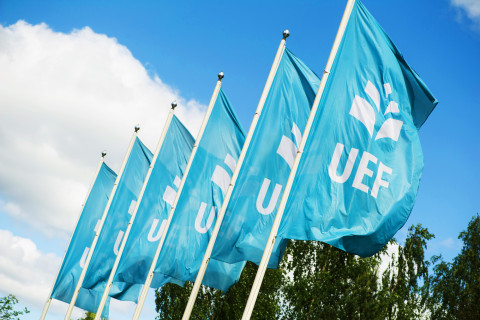With an increasing need to produce more transgenic strains of mammalian laboratory models, it has become essential to focus on production and breeding efficiency so that more strains can be produced with fewer animals. This is both a practical and an ethical issue. The aim of Jussi Helppi’s doctoral project was to study whether higher ambient temperature, different dietary phytoestrogen levels, and novel bedding material, cotton cloth, could improve reproduction response in embryo donors, as well as in recipient females used for producing transgenic mice. The main hypotheses were that high temperature, low phytoestrogen and cotton cloth bedding would all improve reproductive outcomes. The focus was mainly on pregnancy rates as well as embryo and sperm yield and quality as indicators of successful reproduction.
Helppi demonstrated that ambient temperatures of up to 28°C can be tolerated by mice without an adverse effect on their early reproductive performance. However, the shift from 28°C to 30°C results in a significant drop in both male and female reproductive performance. High phytoestrogen content in mouse diet seems to benefit early embryonic development, resulting in high yield and good quality embryos, but conversely yielding the lowest number of pups born. Significantly more pregnancies were observed in the wooden chip bedding compared to cotton cloth bedding.
Helppi concludes that higher ambient temperatures than currently recommended could be used when producing transgenic mice. Furthermore, high levels of phytoestrogens in mouse diet may not be as disadvantageous as often stated, and in certain cases they may even support good reproduction. Additionally, he was able to demonstrate that a cotton cloth cannot be recommended as a sole replacement for bedding and nesting material.
The present data offers a better understanding of the limits and possibilities of some of the factors influencing the productivity of mice housed in individually ventilated cages and used to generate transgenic mouse lines. This could potentially lead to improved welfare and fewer animals being used for experiments.
The doctoral dissertation of Jussi Helppi, Master of Science, entitled Effects of environmental factors on reproductive performance of laboratory mice, will be examined at the Faculty of Science and Forestry. The Opponent in the public examination will be Professor Gero Hilken of the University of Duisburg-Essen, and the Custos will be Professor Raine Kortet of the University of Eastern Finland. The public examination will be held online in English on 28 October 2020, starting at 12 noon.
Photo available for download at https://mediabank.uef.fi/A/UEF+Media+Bank/38058?encoding=UTF-8
